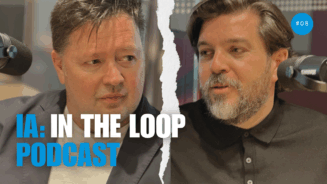“This is mainly from an inheritance tax or probate point of view, as well as certain tax arbitrage opportunities. As a rule, they can work for South African tax residents,” he says, while noting that for non-resident South Africans it would depend heavily on which jurisdiction they are coming from.
Another product increasingly featuring on Ratcliffe’s agenda are exchange-traded funds (ETFs).
“Within our segregated offshore portfolios, we would use a combination of ETFs, smart beta strategies, big global themes and bespoke equities, whether that be a Euro Stoxx, US pharmaceutical or Japan equity theme, and try and implement that through various ETFs,” he says.
“Together with specialist direct equity and then, obviously, your big branded funds, is how our portfolios are constructed.”
PCH has its own in-house investment committee to help make its investment decisions but also makes use of external asset market consultants. “We follow a robust investment process, focusing on finding long-term value by investing in quality businesses with earnings momentum at attractive prices,” says Ratcliffe.
“We combine this bottom-up stockpicking approach with top-down macro overlay. We purposely do not follow a particular style and believe that by blending the different styles we will deliver long-term alpha.
“It’s all part of the wealth management advisory and investment science,” he says.
PCH also aims to provide portfolios for different outcomes described as income, wealth preservation and growth.
This involves putting the investments into risk buckets and assessing the short-term risk of market volatility, versus the impact of a longer-term risk such as inflation.
Ratcliffe says during the currency volatility sparked by the recent downgrade of South Africa’s credit rating to junk status, its strategies proved their worth.
“Thankfully, the phone lines were fairly quiet, and I think that’s largely because we had been talking about diversified currency portfolios to our clients and the possibility of this ratings downgrade since 2010, suggesting they should consider taking a bigger exposure offshore.
“Having some sort of strategic plan, something you can anchor back to in times of volatility, whether it’s the currency or the markets, makes conversations a lot easier.”
Ratcliffe says PCH has positioned its portfolios tactically for the growing risk of the downgrade and has taken a maximum overweight offshore position.
While riding out the volatility in the currency markets, the firm is also prepared for the big changes expected in financial advice businesses in South Africa from the next phase of the country’s planned retail distribution review (RDR).
“We’ve had all sorts of legislation implemented over the years, and the industry has raised the bar. RDR can only be a good thing.
“PCH is well positioned for RDR in the sense that our advisory, asset management and fiduciary entities are all separate companies, with separate licences.
“So, while we don’t know what the final version of RDR is going to look like, as far as our advisers, the advice company and the asset management firm are concerned, we are all good to go.”




